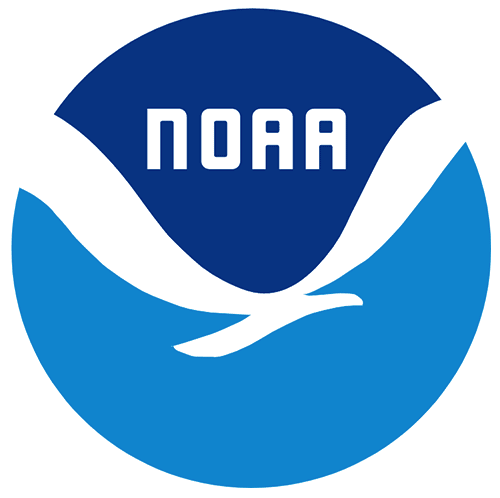2003 SIO March Lidar: Dana Point to Point La Jolla, CA
Welcome Guest ( Sign In )
NOAA
 This data set contains lidar point data (Geodetic Coordinates) from a strip of Southern California
coastline (including water, beach, cliffs, and top of cliffs) from Dana Point to Point La Jolla. The data set was created by
combining data collected using an Optech Inc. Airborne Laser Terrain Mapper (ALTM) 1225 in combination with geodetic quality
Global Positioning System (GPS) airborne and ground-based receivers. The Bureau of Economic Geology, the University of Texas
at Austin owns and operates an ALTM 1225 system (serial number 99d118). The system was installed in a twin engine Partenavia
P-68 (tail number N6602L) owned and operated by Aspen Helicopter, Inc. The lidar data set described by this document was collected
on 28-29 March 2003; Julian Days 08703 and 08803 (see Lineage, Source_Information, Source_Contribution for pass information).
Conditions on both days were clear skies, no fog or low clouds. 99d118 instrument settings for these flights were; laser pulse
rate: 25kHz, scanner rate: 26Hz, scan angle: +/- 15-20deg, beam divergence: narrow, altitude: 900-1160m AGL, and ground speed:
90-132kts. Two GPS base stations (Scripps pier and Dana Point, see Lineage, Source_Information, Source_Contribution for
coordinates) were operating during the survey. Data represented is all points including terrain, vegetation, and structures.
This data also contains returns from the water surface. No processing has been done to remove returns from terrain, vegetation,
structures or water surfaces.
Original contact information:
Contact Name: Julie Thomas/Randy Bucciarelli
Contact Org: SCBPS/CDIP, Scripps Institution of Oceanography
Title: Project Managers
Phone: 858-534-3032
This data set is an LAZ (compressed LAS) format file containing LIDAR point cloud data.
This data set contains lidar point data (Geodetic Coordinates) from a strip of Southern California
coastline (including water, beach, cliffs, and top of cliffs) from Dana Point to Point La Jolla. The data set was created by
combining data collected using an Optech Inc. Airborne Laser Terrain Mapper (ALTM) 1225 in combination with geodetic quality
Global Positioning System (GPS) airborne and ground-based receivers. The Bureau of Economic Geology, the University of Texas
at Austin owns and operates an ALTM 1225 system (serial number 99d118). The system was installed in a twin engine Partenavia
P-68 (tail number N6602L) owned and operated by Aspen Helicopter, Inc. The lidar data set described by this document was collected
on 28-29 March 2003; Julian Days 08703 and 08803 (see Lineage, Source_Information, Source_Contribution for pass information).
Conditions on both days were clear skies, no fog or low clouds. 99d118 instrument settings for these flights were; laser pulse
rate: 25kHz, scanner rate: 26Hz, scan angle: +/- 15-20deg, beam divergence: narrow, altitude: 900-1160m AGL, and ground speed:
90-132kts. Two GPS base stations (Scripps pier and Dana Point, see Lineage, Source_Information, Source_Contribution for
coordinates) were operating during the survey. Data represented is all points including terrain, vegetation, and structures.
This data also contains returns from the water surface. No processing has been done to remove returns from terrain, vegetation,
structures or water surfaces.
Original contact information:
Contact Name: Julie Thomas/Randy Bucciarelli
Contact Org: SCBPS/CDIP, Scripps Institution of Oceanography
Title: Project Managers
Phone: 858-534-3032
This data set is an LAZ (compressed LAS) format file containing LIDAR point cloud data.
